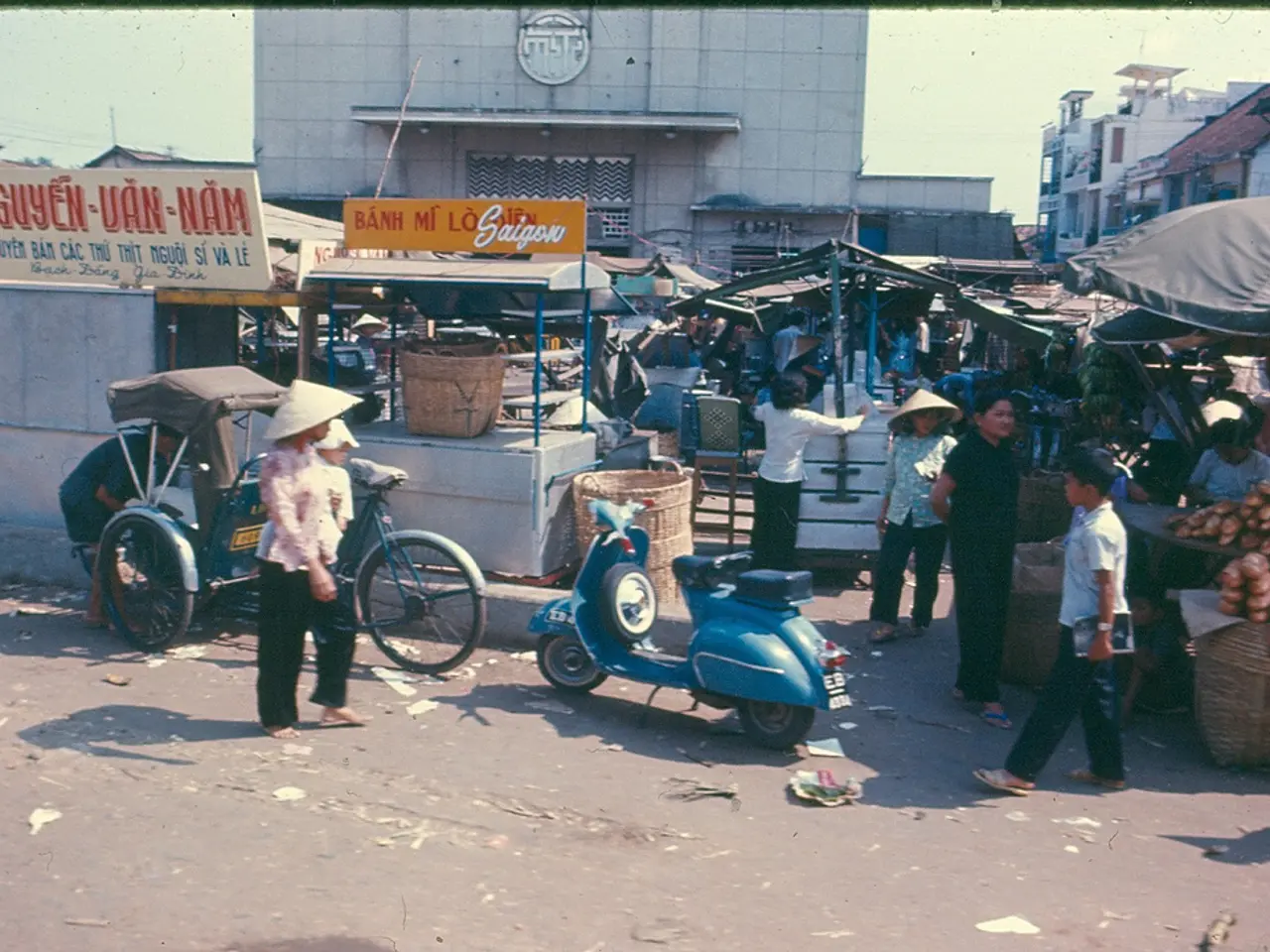Five Interviews with Siddharth Hande, Head and Owner of Kabadiwalla Connect
Kabadiwalla Connect, a startup based in Chennai, India, is making strides in improving waste management in the developing world. The organization's mission is to ensure the lives of all stakeholders in the informal economy improve as they work towards broader goals for a circular economy.
Kabadiwalla Connect is implementing innovative technology-based solutions to connect waste-pickers with the broader waste management ecosystem. One of their key innovations is the Hyperlokal™ smart tool, designed specifically for waste-pickers to enhance their efficiency and integration into the waste chain.
Streamlining Waste Collection
The organization is creating digital platforms that link informal waste-pickers (kabadiwallas) with households and businesses to streamline scrap collection. This connection allows for a more efficient waste management system, benefiting both the waste-pickers and the environment.
Understanding the Informal Waste Ecosystem
Kabadiwalla Connect conducts extensive research to better understand informal waste ecosystems. This research aids in designing more effective tech-driven interventions.
Promoting a Circular Economy
By leveraging technology, Kabadiwalla Connect is promoting a circular economy by ensuring better segregation, collection, and recycling of waste materials. This approach is crucial in the developing world, where half of the waste produced is organic waste that could be composted, and a quarter is recyclable.
Recognition and Impact
Kabadiwalla Connect's innovative approach has not gone unnoticed. The organization has received awards from the MIT Climate CoLab, the World Economic Forum, and was admitted to the Prevent Waste Alliance in 2022. These recognitions highlight the impact and innovation behind their tech-based waste management solutions.
Making a Difference in India
In India, Kabadiwalla Connect is making a significant difference. The informal waste management system in India, which includes waste-pickers and kabadiwallas, recovers 20% of recyclable post-consumer waste. The organization is implementing point-of-sale devices in Indonesia and India to register waste-pickers as suppliers and create traceable receipts. They are also piloting IoT-enabled smart bins in 1,500 homes in Chennai to track segregated waste and help waste-pickers plan collection schedules.
Data-Driven Approach
Kabadiwalla Connect started collecting data in 2015 through a street-by-street census style survey of scrap shops and processors in all 200 wards of Chennai, India. The data collected includes demographics, access to finance, business activities, and material flow. This data is analyzed and visualized on a data dashboard for stakeholders to explore and understand the informal waste management.
The Future of Resource Recovery and Recycling
Kabadiwalla Connect aims to map 100 cities in the next five years, with the data available on an open-source application for regular updates. The future of resource recovery and recycling in the developing world, according to Kabadiwalla Connect, involves the informal sector.
Impact on Revenue and Employment
In ward 100 of Chennai, there are approximately 180 waste-pickers and 16 small scrap shops that collect around 720 tons of recyclable waste annually, generating around $170,000 in revenue. This shows the significant economic impact of Kabadiwalla Connect's work in the informal waste sector.
Policy Implications
Policymakers can use Kabadiwalla Connect's data to develop strategies that integrate informal waste actors into the formal waste management system. This integration could lead to more efficient waste management and reduced environmental impact.
Cost Savings for Municipalities
Municipalities in India spend between 20 and 50% of their budgets on waste collection. By improving the efficiency of the waste management system through technology and integration of the informal sector, Kabadiwalla Connect's solutions could lead to significant cost savings for municipalities.
Traceability and Accountability
Kabadiwalla Connect is using waste bags with QR codes to track waste origin and promote traceability for companies. This traceability promotes accountability in the waste management process, ensuring that companies are meeting their waste management responsibilities.
In conclusion, Kabadiwalla Connect is making a significant impact on waste management in the developing world. Their technology-based solutions are improving the lives of waste-pickers, promoting a circular economy, and offering cost savings for municipalities. Their work is a testament to the power of innovation and technology in solving complex global problems.
- Kabadiwalla Connect's Hyperlokal™ smart tool, a tech innovation, is designed to boost the efficiency of waste-pickers and integrate them more effectively into the waste chain.
- By digitally linking informal waste-pickers, households, and businesses, Kabadiwalla Connect aims to streamline scrap collection for a more efficient waste management system, ultimately benefiting both the waste-pickers and the environment.
- Through extensive research, Kabadiwalla Connect seeks to better comprehend informal waste ecosystems, enabling the development of more effective tech-driven interventions.
- Leveraging technology, Kabadiwalla Connect advocates for a circular economy by promoting better waste segregation, collection, and recycling, a critical approach in the developing world where half of the waste produced is organic and compostable, and a quarter is recyclable.
- Kabadiwalla Connect's innovative tech-based waste management solutions have garnered recognition, securing awards from prestigious organizations like the MIT Climate CoLab, the World Economic Forum, and the Prevent Waste Alliance in 2022.
- Kabadiwalla Connect's strategies have made a significant difference in India, where the informal waste management system recovers 20% of recyclable post-consumer waste.
- The organization is using IoT-enabled smart bins and point-of-sale devices to register waste-pickers as suppliers, create traceable receipts, and help waste-pickers plan collection schedules in India and Indonesia.
- Kabadiwalla Connect collects comprehensive data, including demographics, access to finance, business activities, and material flow, to analyze and visualize on a data dashboard for stakeholders, providing valuable insights into the informal waste management system.
- Policymakers can utilize Kabadiwalla Connect's data to develop strategies that integrate informal waste actors into the formal waste management system, potentially leading to more efficient waste management, reduced environmental impact, and significant cost savings for municipalities.




